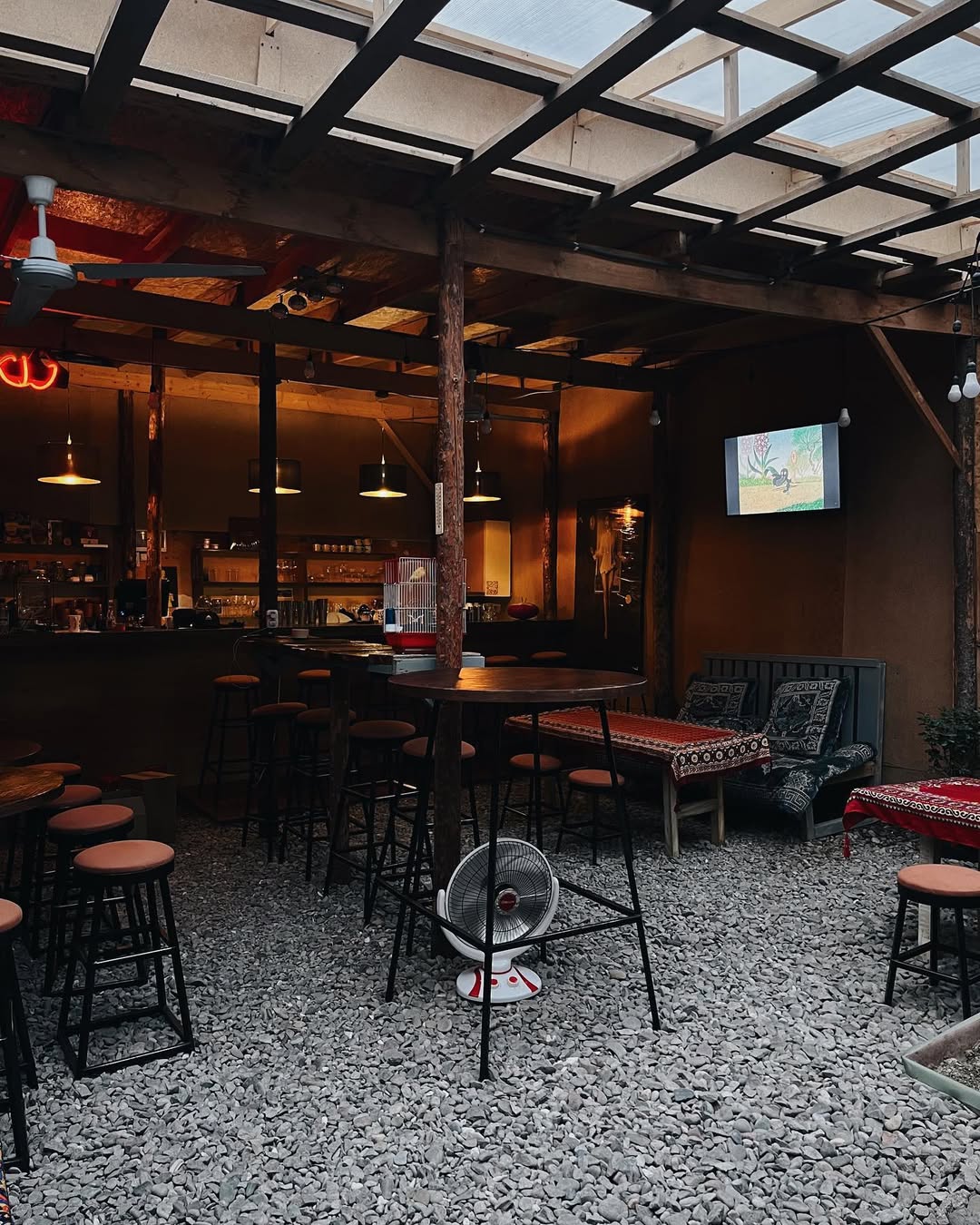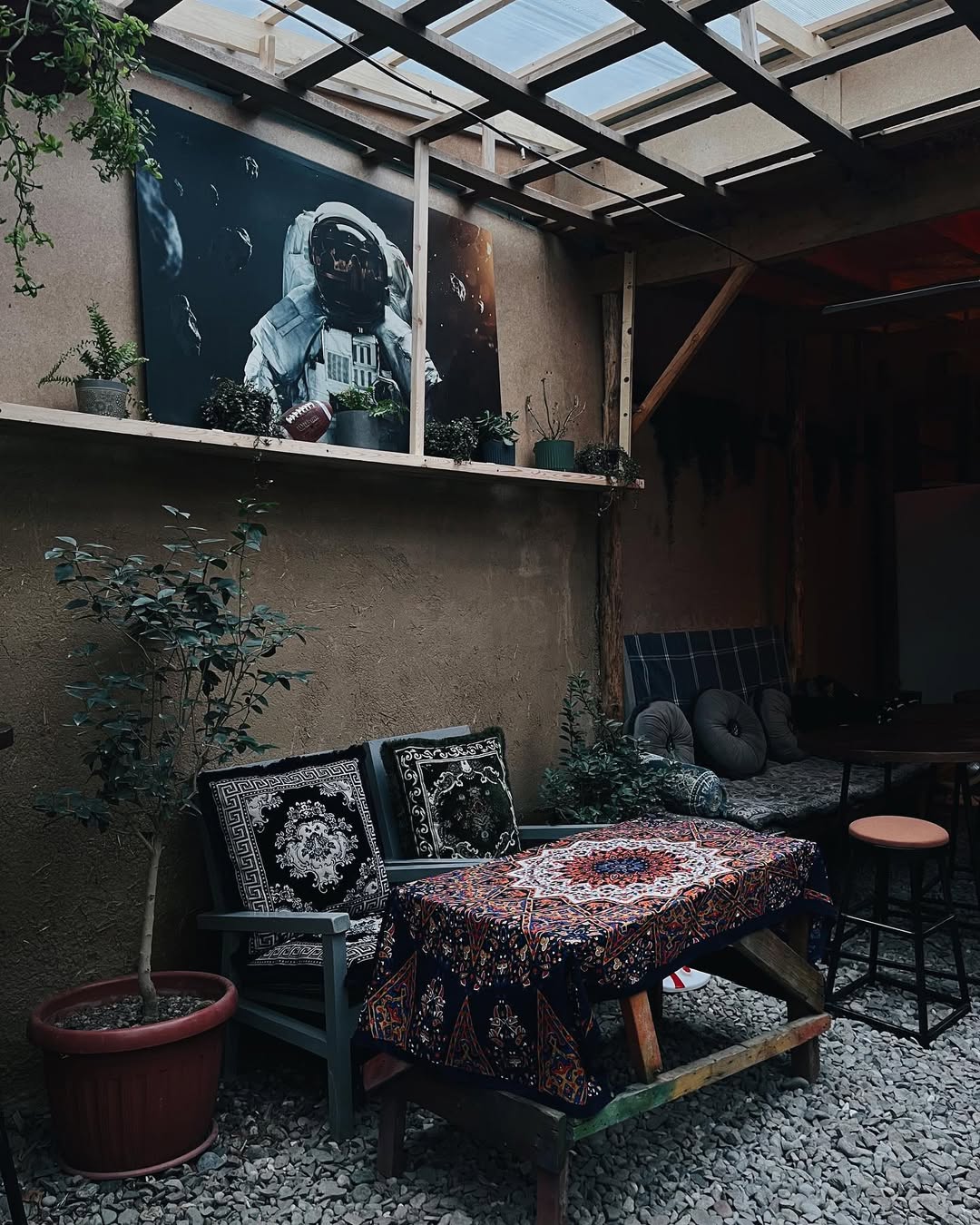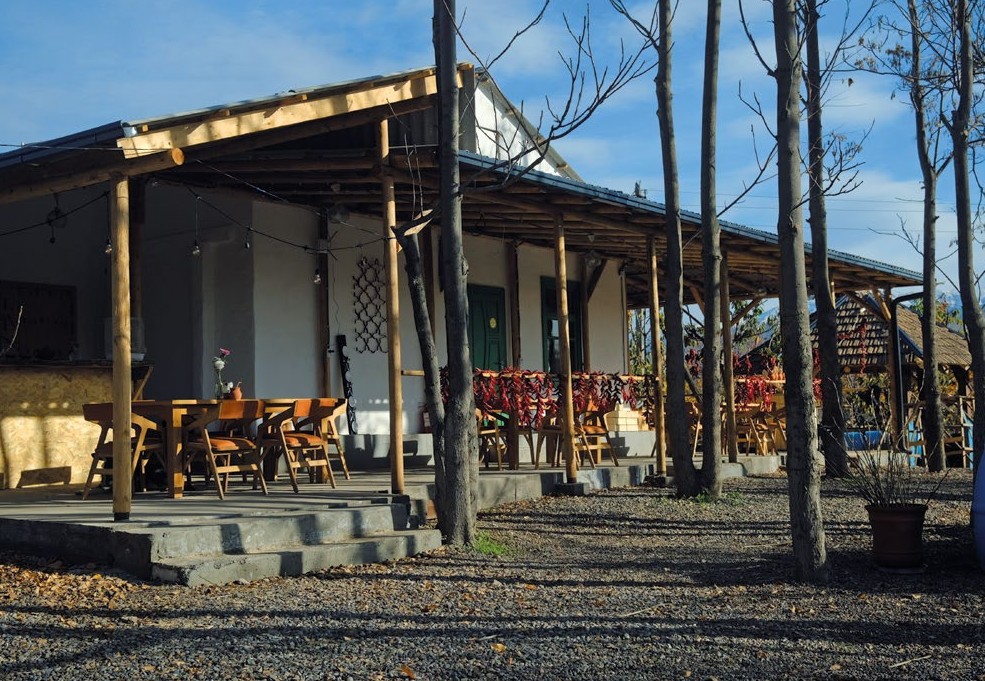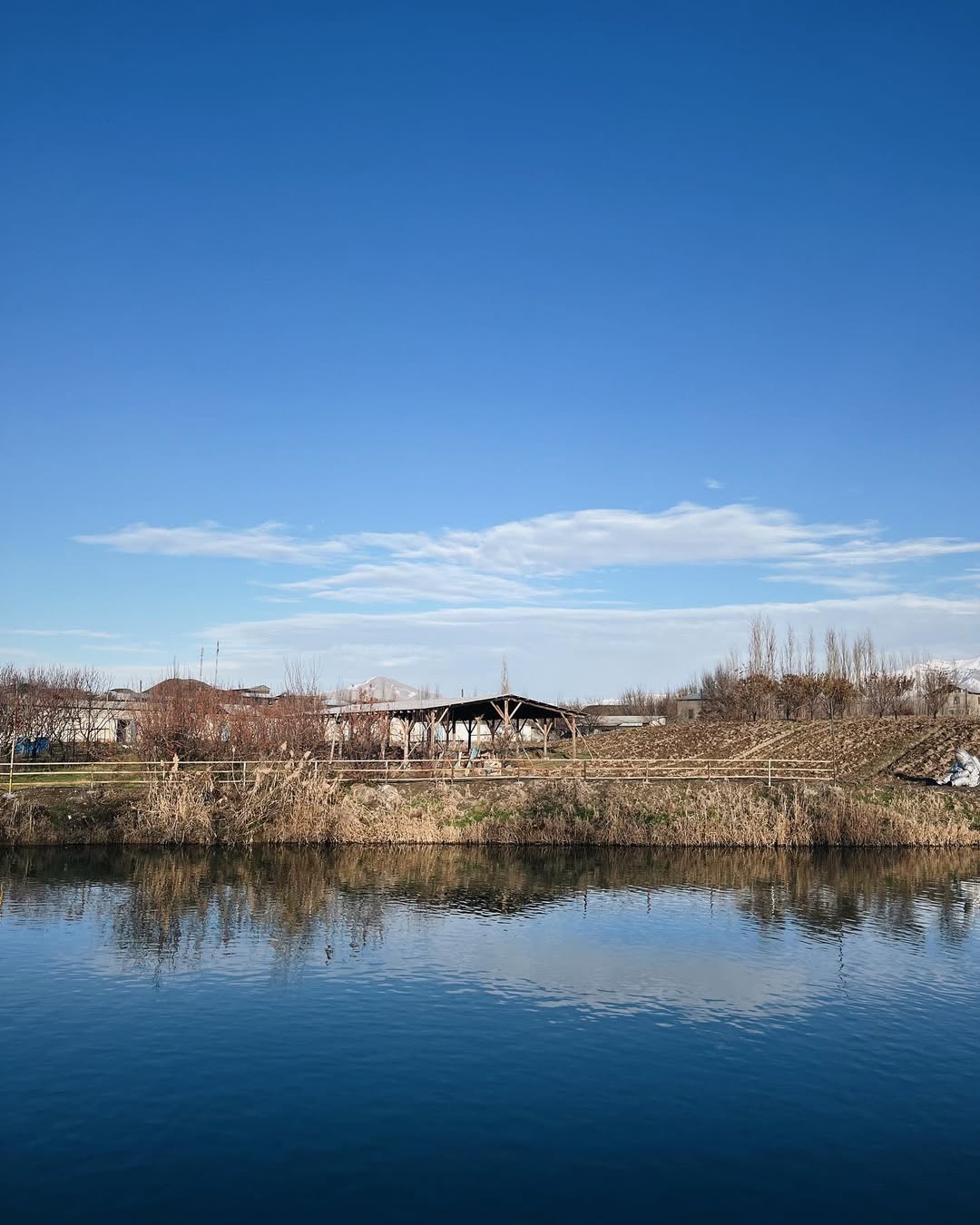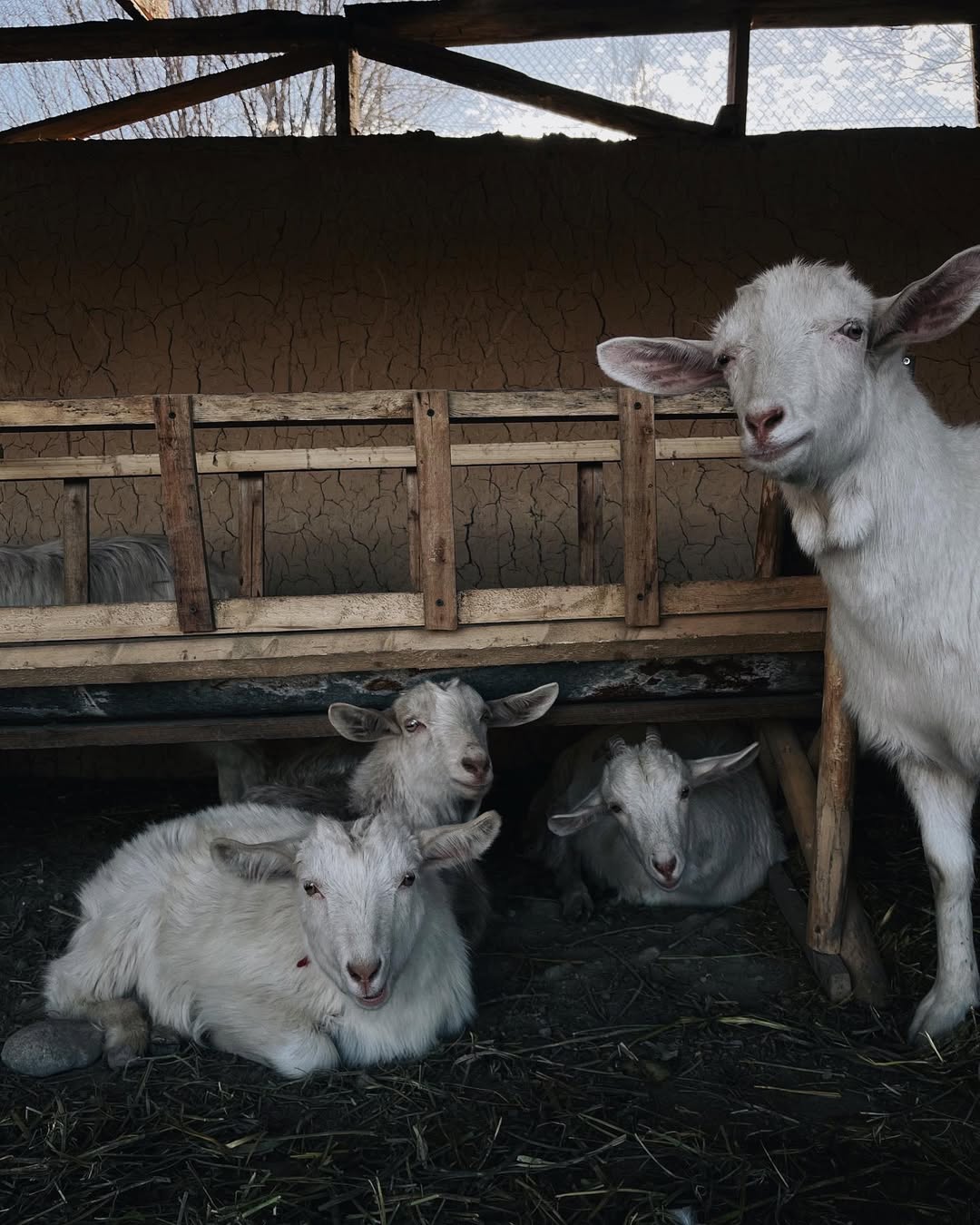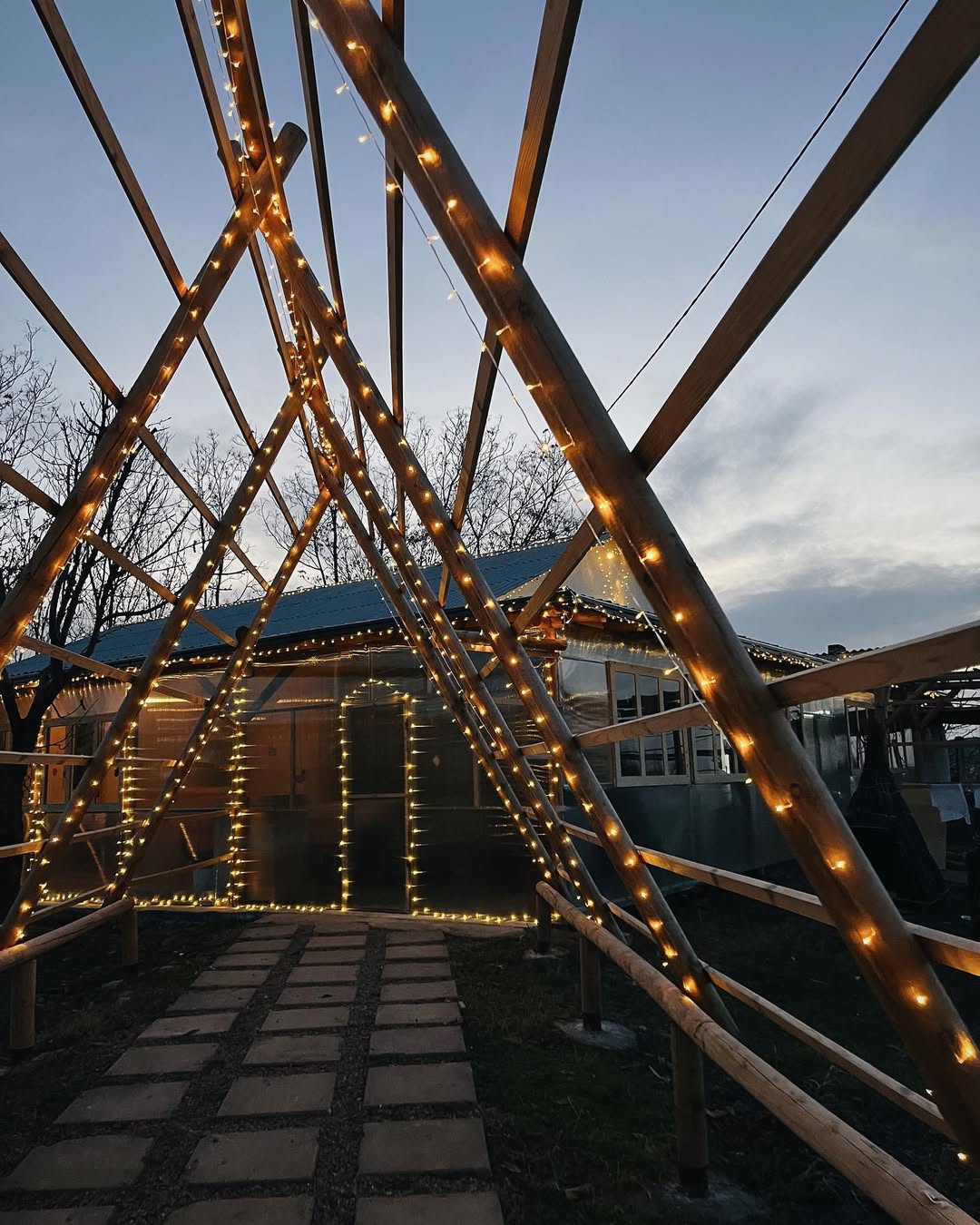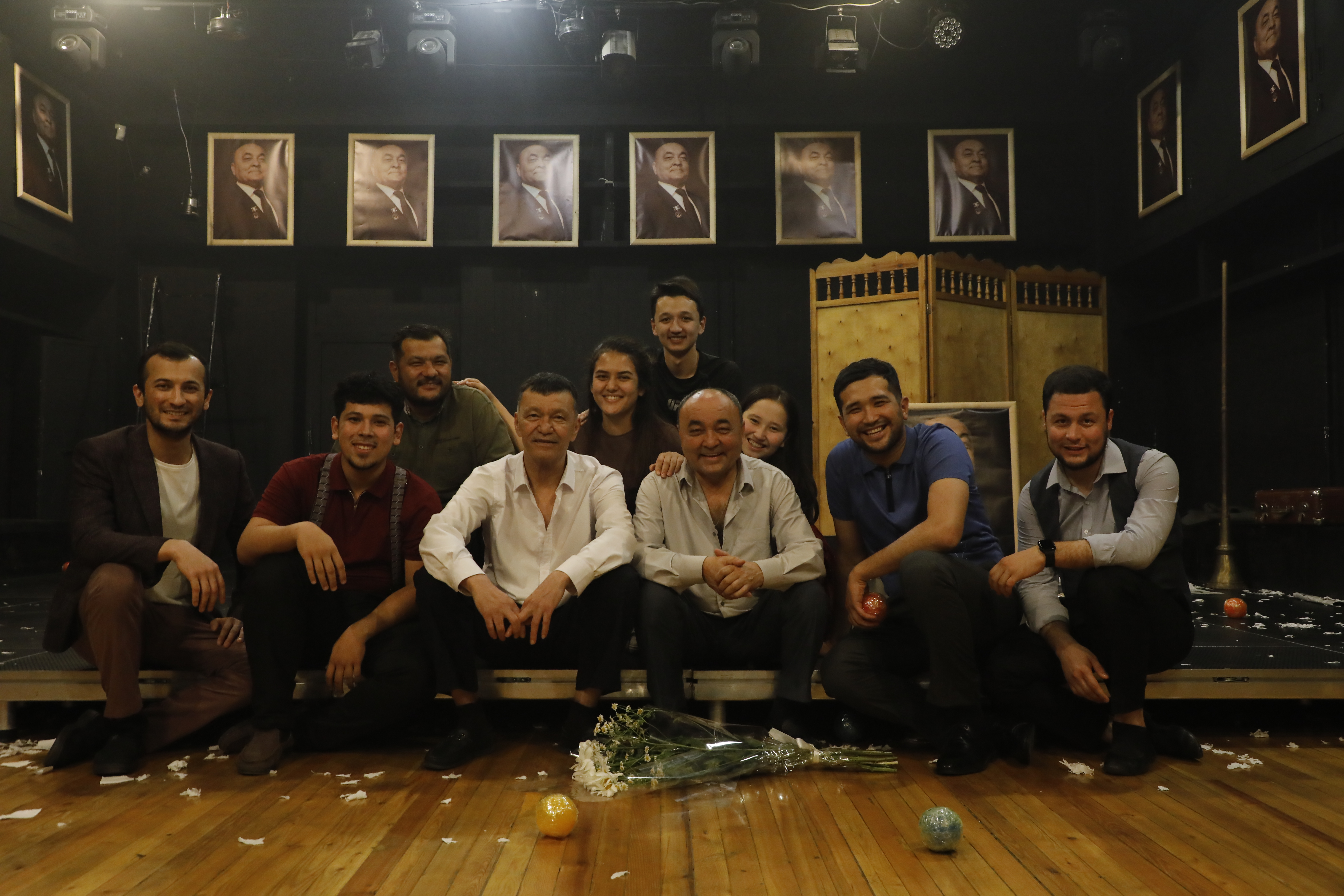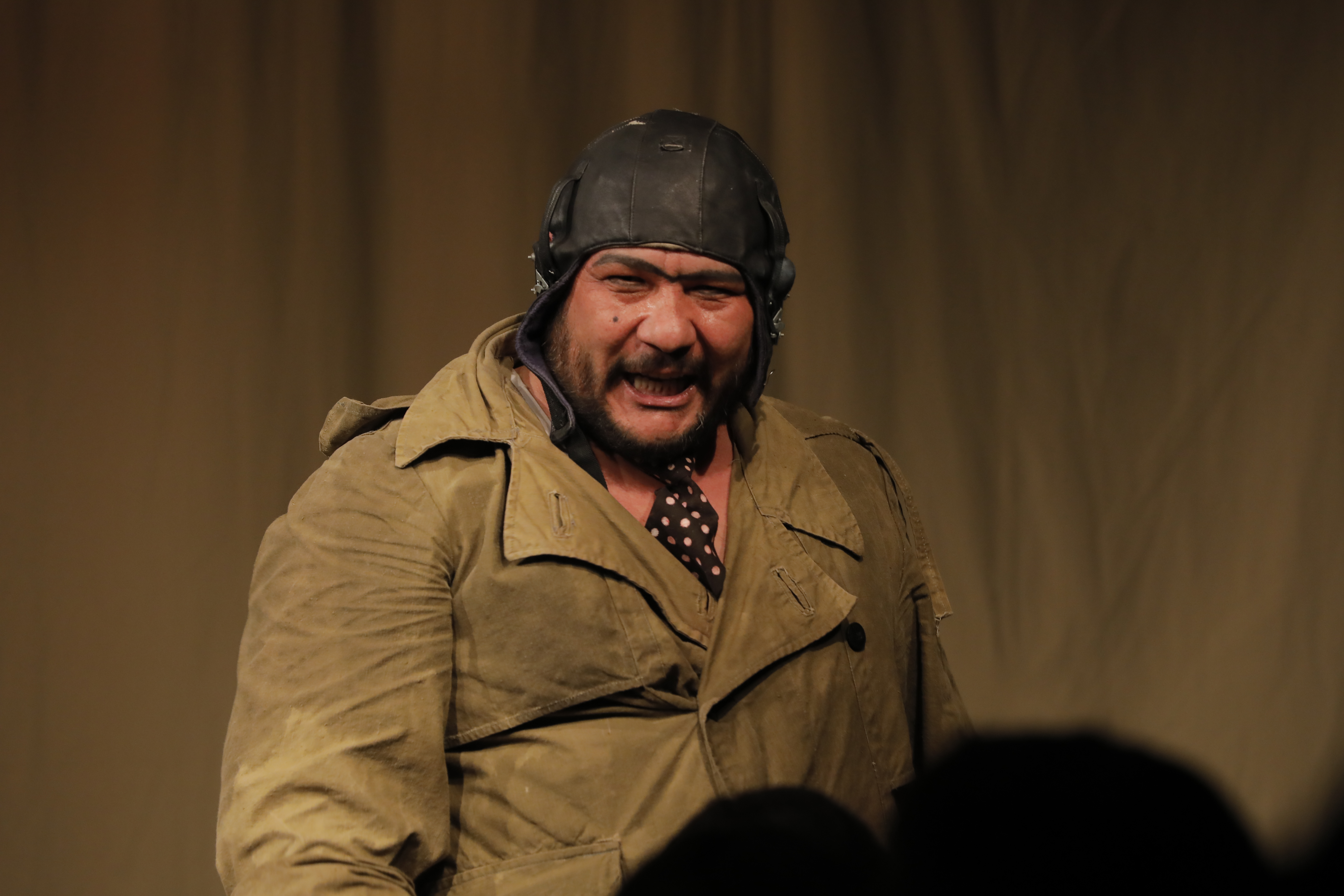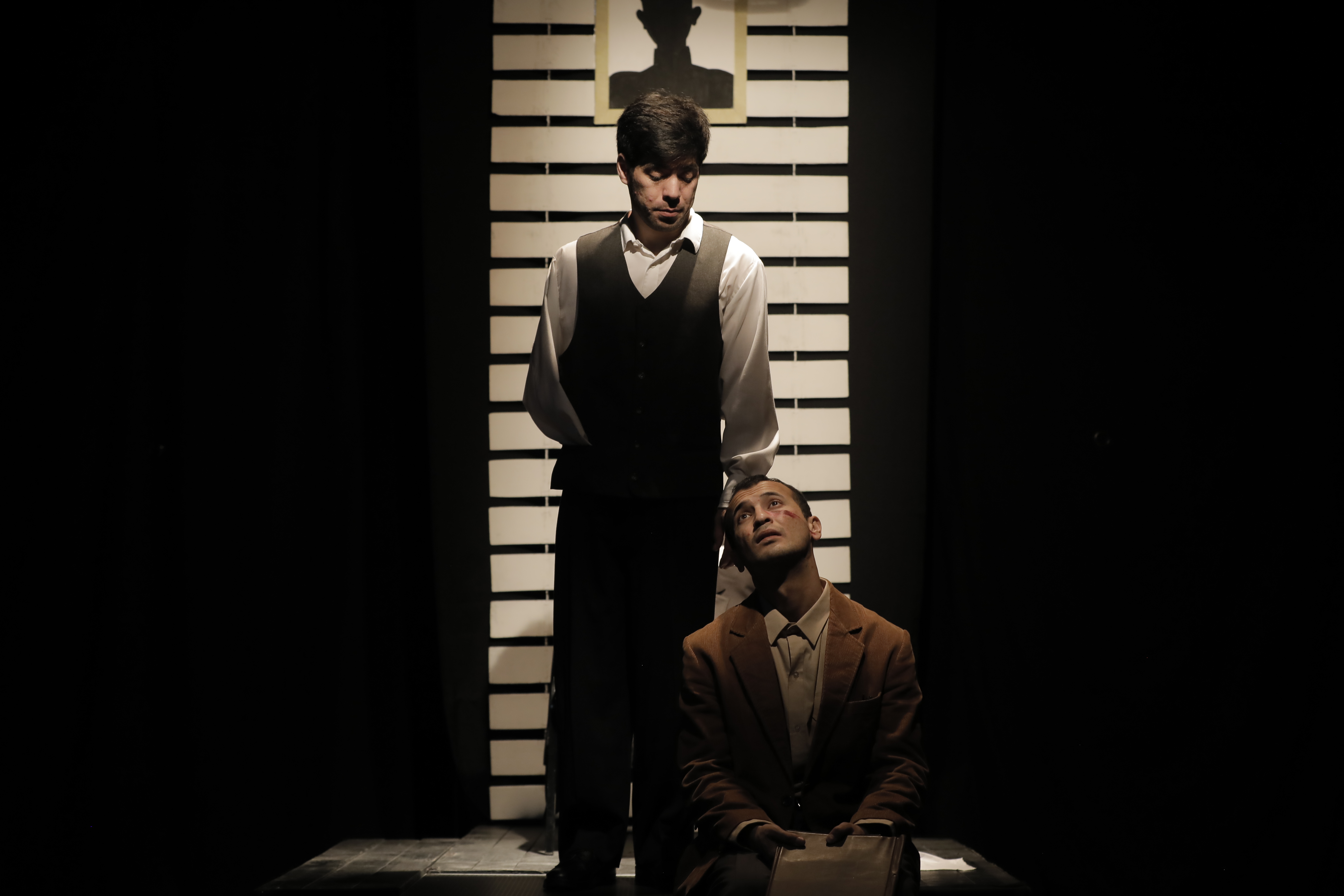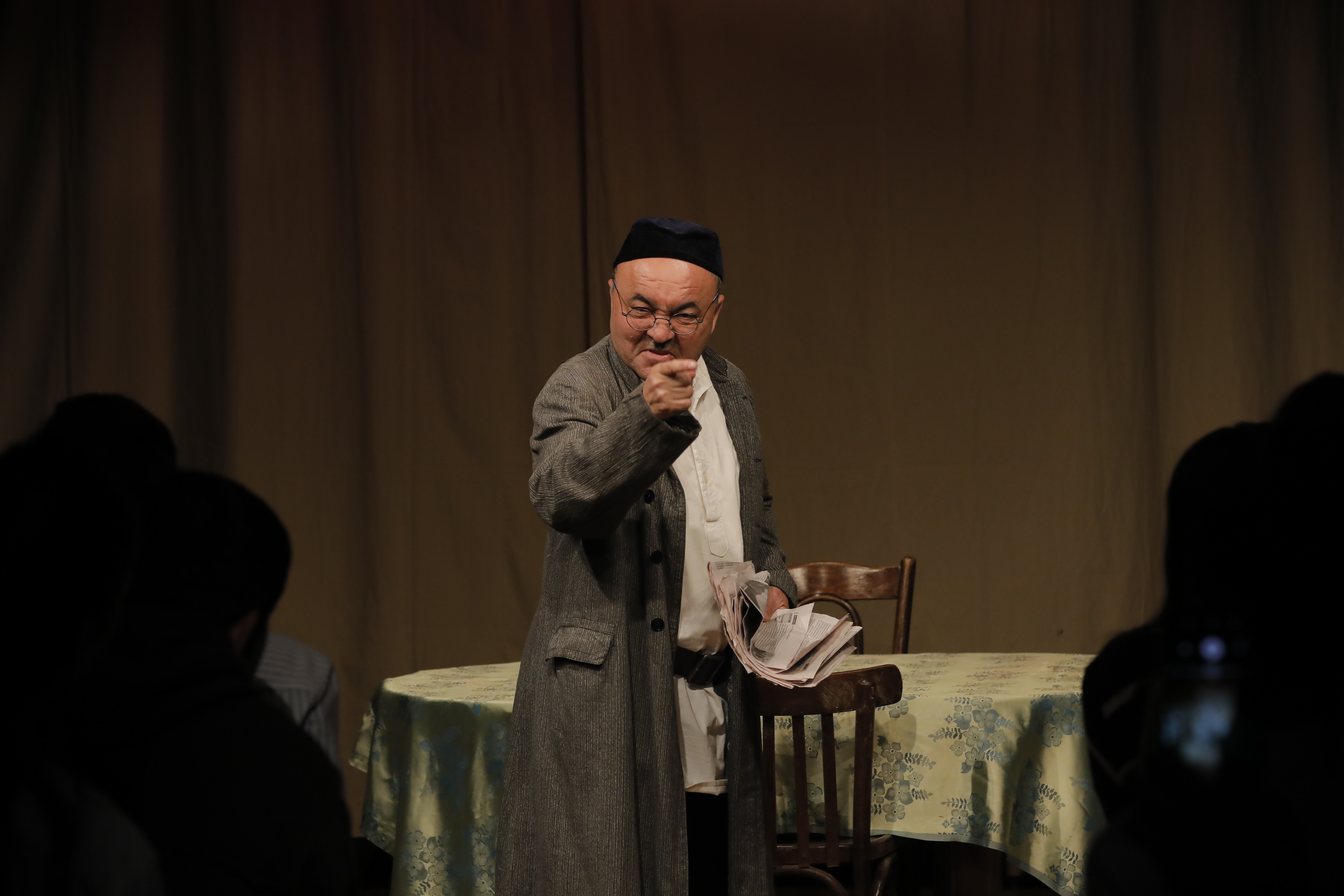
Uzbekistan • 02 June, 2025
Follow the Rabbit: Walk through non-touristy Tashkent
Tashkent is not just the capital of a modern state but also a true cultural gem. Within the city and its surroundings, one can find numerous attractions that reflect the rich history and multifaceted culture of the region. Yet, this metropolis can surprise even its lifelong residents, as there are many previously unexplored but fascinating locations to discover. We invite you to join us on a short journey through the hidden Tashkent.
Act One. Scene One
True theater lives thanks to enthusiasts who dedicate their entire lives to it. For them, it is not just a profession but an opportunity to engage in dialogue with contemporary audiences, to rethink the past, and to seek answers to pressing questions of the day. A home to such enthusiasm, inspiration, and powerful creative energy can be found in the Ts-1 district, near the old conservatory. In an unassuming building tucked away in a secluded courtyard lies a sanctuary of art — the Youth Experimental Theater-Studio “Diydor.”
Its history dates back to 1989, when the honored cultural worker of Uzbekistan, director, and teacher Ergash Masafaev staged a production of “Diydor” based on the play by playwright Maksim Karimov on the stage of this then-unknown theater. The premiere was remarkable not only for its resounding success: the name of the production was later given to the theater itself.
However, “Diydor” was not a theater in the conventional sense. It was more like an Actors’ House — a meeting place for theater practitioners from various countries who shared experiences, worked on new productions, conducted creative experiments, and found inspiration.
The theater reached a new stage of development in 2006 when Bakhodir Yuldashev — a theater and film actor, theater director, honored art worker of the Uzbek SSR, and People’s Artist of Uzbekistan — became its artistic director. In 2021, he was succeeded by Bobur Yuldashev. During this period, more than 40 productions were staged, tours were held across Uzbekistan, and joint productions were carried out with the ESSENCE Theater-Studio (USA). The troupe also participated in the XXI International Volkov Festival (Russia) and the International Street Theater Festival (Kazakhstan). Today, renowned directors from around the world are invited to stage globally acclaimed masterpieces. For example, Sergey Potapov — director, screenwriter, honored art worker of the Republic of Sakha (Yakutia), and member of the Russian Union of Theater Workers and the Russian Union of Cinematographers — staged Shakespeare’s “The Taming of the Shrew” and “King Lear,” while Tajik playwright and theater director Barzu Abdurasulovich Abdurazzakov — honored artist of the Republic of Tajikistan — directed productions of “The Butterfly’s Dream” based on Timur Zulfiqarov’s novel and “Biedermann and the Arsonists” by Swiss playwright Max Frisch. Another remarkable feature of the Diydor Theater-Studio is that it is the only theater in Central Asia that offers its performances free of charge. The organizers explain this as a desire to make art accessible to everyone. In addition to staging performances, the Diydor Theater-Studio offers free training in various areas of theater arts, accepting young people based on entrance exams. So, if you’ve always dreamed of connecting your life with theater but didn’t know where to start, Diydor can be the perfect stepping stone for an acting career. Address: Tashkent, Mirzo-Ulugbek District, Buyuk Ipak Yuli 9. Color. Chic. Silence Moving on. In the city center, we find another inviting spot: a cozy two-story house with a large courtyard, vintage decor, and a welcoming atmosphere. This is Joydaman — a speakeasy-style cafe with an author’s menu, accessible only by prior reservation via Telegram. This venue crafts its signature infusions, lemonades, and other drinks from natural fruits. As for the kitchen, Joydaman uses exclusively farm-fresh products from the Parkent region, where the venue’s countryside project — Kosa Farm — is located. Essentially, Joydaman served as a “pilot” for the farm, and in just over a year of existence, the team developed around 800 different dishes and built a base of the best suppliers of farm products. On Sundays, Joydaman hosts gastro-networking events, where professional chefs are invited. The venue’s team prepares a special menu, and guests gather not only to try new dishes but also to socialize. If you’re a fan of Joydaman’s cuisine, here’s some good news: despite its “closed” format, the venue offers catering services for parties and events and often appears at major music festivals and various gatherings. The End Justifies the Journey We conclude our journey with the project mentioned above: Kosa Farm, an experimental eco-farm located 35 kilometers from Tashkent. On its territory stands a restaurant that reimagines local cuisine: all dishes are made from natural, homegrown products using both traditional and innovative technologies. The farm also features two fish ponds, a production workshop with its own smokehouse, cheesemaking facility, meat and vegetable processing areas. Construction is underway on a two-story building that will house various workshops — from ceramics and metalwork to custom bicycles and recycling of paper and plastic — as well as a coworking space and an apart-hotel. As on any farm, here you can see animals: goats, geese, ducks, chickens, Muscovy ducks, parrots, ostriches, rabbits, ponies, horses, cats, and dogs — all of which attract many families with children. The farm adheres to the principles of conscious consumption and zero-waste. All waste is sorted and recycled — the byproducts include biohumus (from organic waste), various items made from recycled plastic, as well as structures on the territory that serve as examples of upcycled building materials. To visit this extraordinary place, a prior reservation is also required. Reservations can be made through the official Instagram page: @kosa.farm.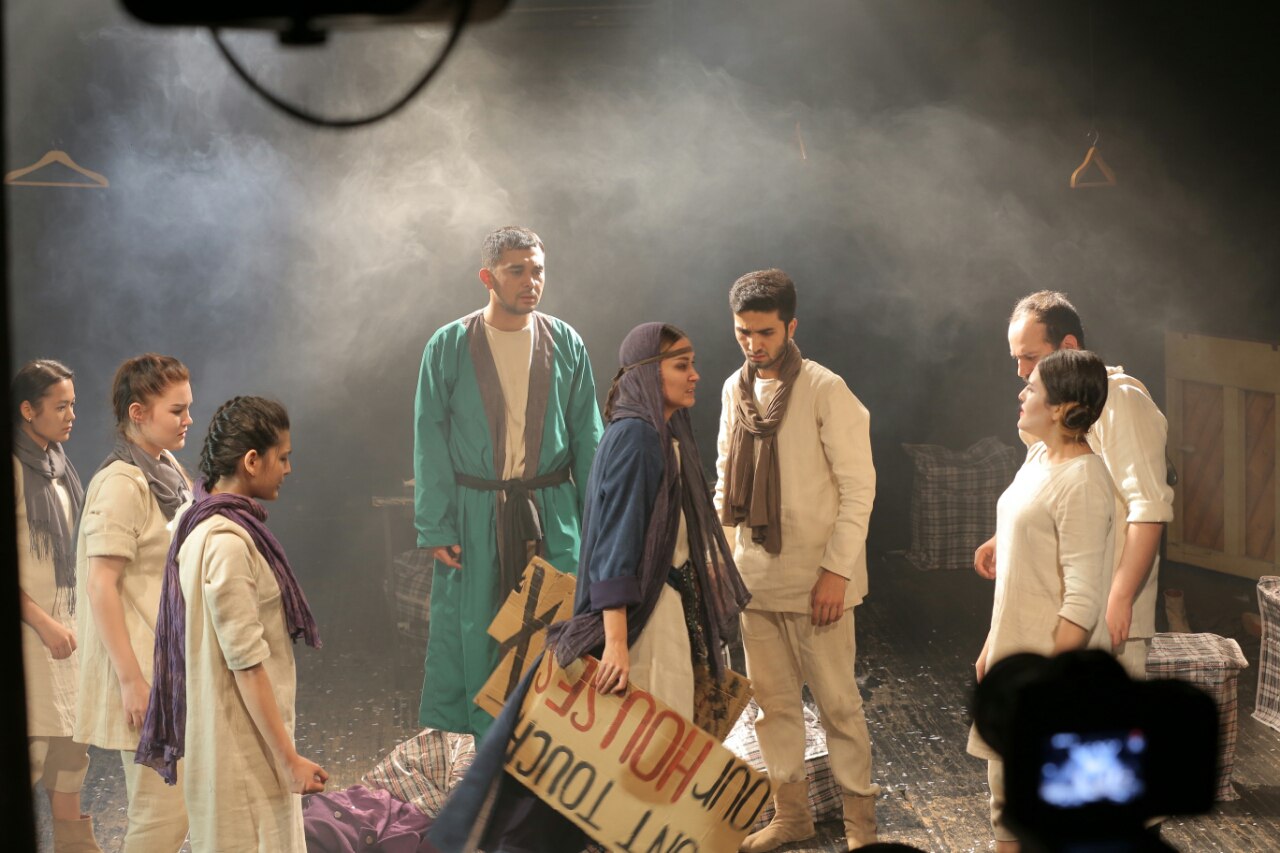
Contact number: +998 (71) 233-62-12.